Research & Education
Scientific Publications & Textbooks
Dr. G: "Shoulder thought leader and cutting-edge researcher"
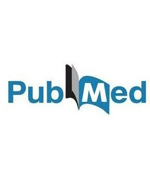
Over 175 (and counting) PubMed Indexed peer-reviewed publications.
Dr. G: "Teaching the teachers"
- For a complete listing of all national and international presentations, lectures, and courses taught, please see CV.
- For information on the Rush Shoulder & Elbow Fellowship, please visit the ASES fellowship page
- For information on the Rush Sports Medicine Fellowship, please visit the website and watch the video below.
Dr. G: "Writing the book(s) on shoulders"
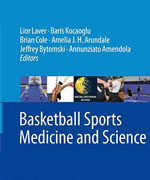 Stoll K, Garrigues GE. Elbow Injuries in Basketball, in Laver L et al (Eds.) Basketball Sports Medicine and Science. Berlin: Springer-Verlag; 2020.
Stoll K, Garrigues GE. Elbow Injuries in Basketball, in Laver L et al (Eds.) Basketball Sports Medicine and Science. Berlin: Springer-Verlag; 2020.
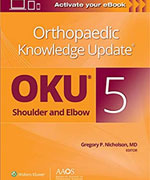 Otte RS, Friedman LGM, Garrigues GE. Massive Rotator Cuff Tears, in Nicholson GP (Ed.) Orthopaedic Knowledge Update OKU 5: Shoulder and Elbow. Rosemont, IL: Wolters Kluwer; 2021.
Otte RS, Friedman LGM, Garrigues GE. Massive Rotator Cuff Tears, in Nicholson GP (Ed.) Orthopaedic Knowledge Update OKU 5: Shoulder and Elbow. Rosemont, IL: Wolters Kluwer; 2021.
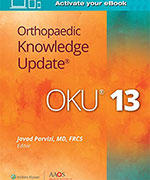 Garrigues GE, section editor. Section 4: Shoulder, In: Parvizi J (Ed.) Orthopaedic Knowledge Update 13. Rosemont, IL Wolters Kluwer Health/American Academy of Orthopaedic Surgeons, 2020.
Garrigues GE, section editor. Section 4: Shoulder, In: Parvizi J (Ed.) Orthopaedic Knowledge Update 13. Rosemont, IL Wolters Kluwer Health/American Academy of Orthopaedic Surgeons, 2020.
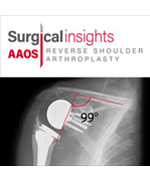 Churchill J, Garrigues GE: Biomechanics of the Reverse Shoulder Arthroplasty: Controversies in Prosthesis Design and Placement, in Parsons BO, Hasan SS, eds: Surgical Insights: Reverse Shoulder Arthroplasty[online course]. Rosemont, IL American Academy of Orthopaedic Surgeons, 2019.
Churchill J, Garrigues GE: Biomechanics of the Reverse Shoulder Arthroplasty: Controversies in Prosthesis Design and Placement, in Parsons BO, Hasan SS, eds: Surgical Insights: Reverse Shoulder Arthroplasty[online course]. Rosemont, IL American Academy of Orthopaedic Surgeons, 2019.
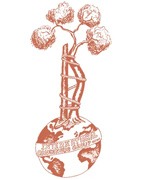 Garrigues GE (co-chair) In: Proceedings of the Second International Consensus Meeting on Musculoskeletal Infection. Brooklandville, MD: Data Trace Publishing Company; 2018.
Garrigues GE (co-chair) In: Proceedings of the Second International Consensus Meeting on Musculoskeletal Infection. Brooklandville, MD: Data Trace Publishing Company; 2018.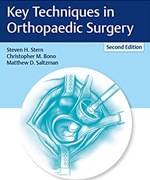 Kim C and Garrigues GE. Proximal Humerus Fracture: Hemiarthroplasty/Reverse Shoulder Arthroplasty, in Stern SH, Bono CB, Saltzman MD (Eds.) Key Techniques in Orthopaedic Surgery. 2nd edition. New York: Thieme; 2018.
Kim C and Garrigues GE. Proximal Humerus Fracture: Hemiarthroplasty/Reverse Shoulder Arthroplasty, in Stern SH, Bono CB, Saltzman MD (Eds.) Key Techniques in Orthopaedic Surgery. 2nd edition. New York: Thieme; 2018.
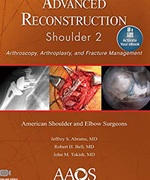 Garrigues GE, Williams GR Jr., The Superior Approach to the Shoulder, In Abrams JS, Bell RH, Tokish JM (Eds.) AAOS Advanced Reconstruction: Shoulder 2, 2016.
Garrigues GE, Williams GR Jr., The Superior Approach to the Shoulder, In Abrams JS, Bell RH, Tokish JM (Eds.) AAOS Advanced Reconstruction: Shoulder 2, 2016.
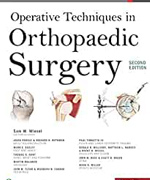 Garrigues GE, Pepe M, Basamania C. Pectoralis Major Ruptures, in Williams GR Jr and Wiesel B (Eds.) Operative Techniques in Orthopaedic Surgery: Volume III, 2016.
Garrigues GE, Pepe M, Basamania C. Pectoralis Major Ruptures, in Williams GR Jr and Wiesel B (Eds.) Operative Techniques in Orthopaedic Surgery: Volume III, 2016.
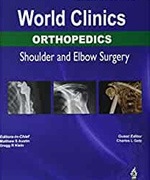 Garrigues GE, Lazarus MD. Impingement Syndrome: Does it Really Exist? In Getz C (Ed.), World Clinics in Orthopaedics, Jaypee Publishers, 2015.
Garrigues GE, Lazarus MD. Impingement Syndrome: Does it Really Exist? In Getz C (Ed.), World Clinics in Orthopaedics, Jaypee Publishers, 2015.
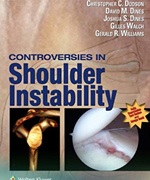 Garrigues GE, Williams GR Jr. Instability after Anatomic Shoulder Arthroplasty: Revision of Components is Necessary, Ch. 29 In Dodson CC, Dines DM, Dines JS, Walch G, Williams G (Eds.) Controversies in Shoulder Instability, Lippincott Williams & Wilkins, Philadelphia 2014.
Garrigues GE, Williams GR Jr. Instability after Anatomic Shoulder Arthroplasty: Revision of Components is Necessary, Ch. 29 In Dodson CC, Dines DM, Dines JS, Walch G, Williams G (Eds.) Controversies in Shoulder Instability, Lippincott Williams & Wilkins, Philadelphia 2014.
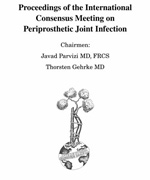 Garrigues GE (delegate) Proceedings of the International Consensus Meeting on Periprosthetic Joint Infection. Chairs: Parvizi J, Gehrke T. Data Trace, Maryland, 2013.
Garrigues GE (delegate) Proceedings of the International Consensus Meeting on Periprosthetic Joint Infection. Chairs: Parvizi J, Gehrke T. Data Trace, Maryland, 2013.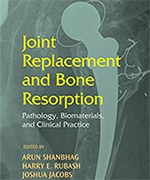 Shanbhag A, Garrigues GE, Kaufman AM, Rubash HE. Genome Sciences in Clinical Orthopaedics In. Shanbhag A, Rubash HE, Jacobs JJ (Eds.) Joint Replacement and Bone Resorption, Taylor & Francis Group, New York, 2006.
Shanbhag A, Garrigues GE, Kaufman AM, Rubash HE. Genome Sciences in Clinical Orthopaedics In. Shanbhag A, Rubash HE, Jacobs JJ (Eds.) Joint Replacement and Bone Resorption, Taylor & Francis Group, New York, 2006.
Research Protocols
Dr. G is pleased to offer the latest in cutting edge research. Patients can take advantage of the many active research protocols being funded by the NIH, FDA, and industrial partners. Patients are never under any obligation to participate in any research, but we will always bring the latest in data-driven potential treatments as options to our patients. Please ask Dr. G or a member of the research team if you are a candidate for any ongoing trials.
Research Interests and Awards
Dr. Garrigues has won multiple awards for his research. He was honored with a prestigious Orthopaedic Research and Education Foundation (OREF) grant in 2018 for a multicenter, randomized trial evaluating the best way to utilize physical therapy after reverse total shoulder arthroplasty. In addition he is a part of an expansive, multi year (2019-2024) multicenter NIH R01 grant working to develop synthetic rotator cuff tendons. He was awarded the 2020 American Shoulder and Elbow Surgeons’ (ASES) Research Grant for his work on the tissue response to wear and corrosion debris from total shoulder replacements—an attempt to understand how to make shoulder replacements work better and last longer.
Dr. Garrigues’ main research goal is to integrate clinical and surgical skills with translational research to advance the care of patients with shoulder pathology. His research is aimed at shoulder health and preservation, with a focus on glenohumeral osteoarthritis, rotator cuff tears, shoulder instability, shoulder and elbow fractures, and shoulder reconstruction. Arthroplasty of the shoulder, including both primary and revision surgery, is a significant part of this practice. Prior to coming to Rush, he was recently the only shoulder and elbow fellowship-trained surgeon serving Duke University, its affiliated hospitals, and the Durham VA medical center. As the Section Head for Shoulder Reconstruction, he managed a very busy reconstructive practice encompassing all aspects of shoulder surgery, with approximately 200 shoulder arthroplasty cases annually, with a high frequency of revision and complex cases. In 2018, after almost a decade as a Duke faculty member, he was recruited to Rush University Medical Center where he successfully established an even higher-volume shoulder reconstruction practice.
Dr. Garrigues’ undergraduate experiences in biochemistry and engineering at Harvard were grounded in research, and he continued that technical research training at MIT and Harvard Medical School, in the Health Sciences and Technology program, while also learning to be a clinician and graduating cum laude. He is always excited to bring his training, encompassing the latest breakthroughs in biology, biochemistry, cell biology, tissue engineering, informatics, biomaterials, and engineering to improve the quality of life for his patients.
